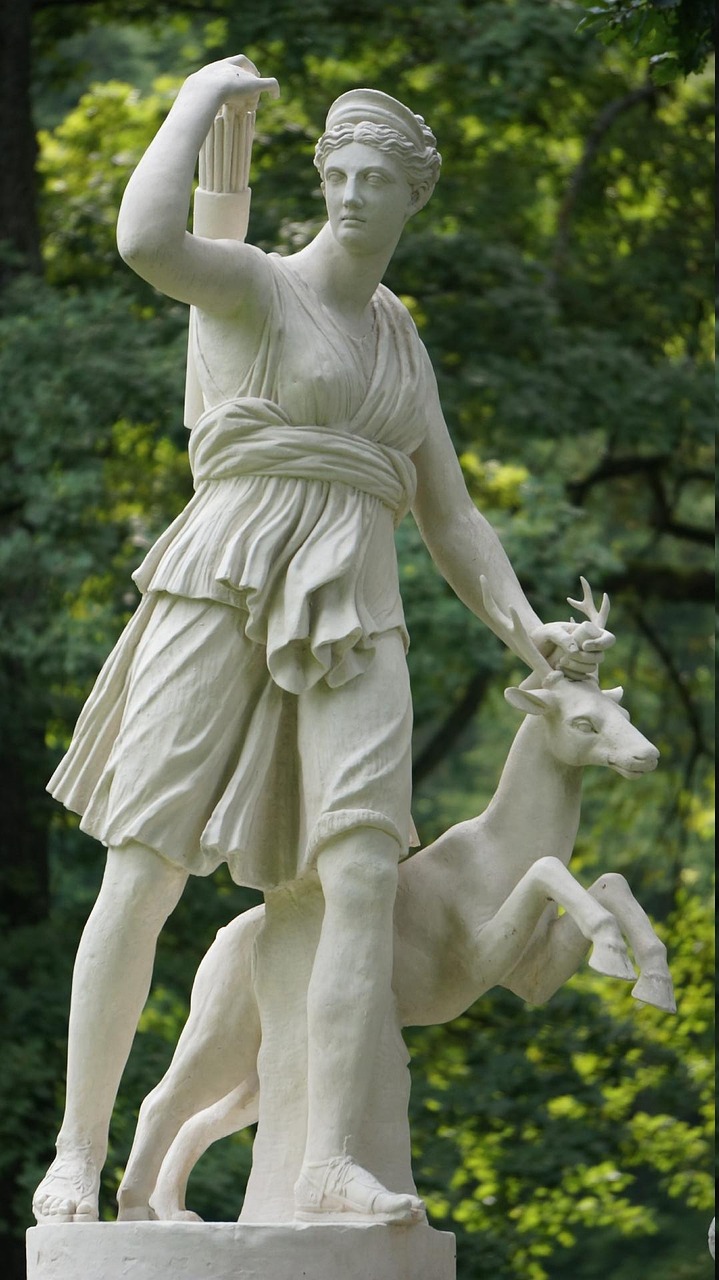“What’s in a name? that which we call a rose
By any other name would smell as sweet.”

As Juliet famously asked during the balcony scene in “Romeo and Juliet”: How much meaning can a name carry and how important is the role it plays in our lives?
In the case of the two star-crossed lovers, their family names brought their lives to a tragic end, making them the true victims of the family feud between the Montagues and the Capulets. So actually, we can presume that if it weren’t for the names, there would be no story of the two young people dying for each other, in the name of love.
Shakespeare is the greatest playwright in the English literature and far beyond, being one of the most well-known personalities in the entire world even to this day. His popularity could be linked to the universality of the stories, the real, unapologetically flawed characters, but also the great wit of his language. He is known to have invented hundreds of new English words. His language is very suggestive because even if you have never heard of one of these words, you can still guess their meaning. One way his genius is shown is through the unique names he chose for his characters.
Today we would like to focus on analyzing how he used some of the names in his plays to represent certain characteristics of these types of personalities or predict their destiny. Shakespeare’s early studies of Greek and Latin inspired many of his works. We can find many references to Greek and Roman mythology or the ancient classics. Here are some examples of a few female characters with names that have such origins:

Olivia – She is a character from Twelfth Night. Her name means peace. Olivia stems from the Greek word elaia, which means olive tree. The exotic-sounding name is sophisticated enough for the countess with so many suitors.
Miranda – One of the female figures from The Tempest. She is lovely and admirable, “to be wondered at”, as her Latin origin name suggests.
Cordelia – In King Lear, she is the only daughter that remains faithful to her father, that is why the author chose the Latin origin name derived from cordis, which means “pure of heart”.

Viola – She is another female figure from Twelfth Night. Her name is linked to a flower that symbolizes modesty and faithfulness. The name also means purple or violet in Latin. If you would like to find out about other names that mean “violet”, you should read our blog article about Names Inspired by Colors.

Ophelia – Her name is of ancient Greek origin and means “help, advantage”. She is the love interest of the lead in Hamlet. Ophelia has a special psychological background; her existence is governed by gloom and melancholy. Her character’s destiny is full of symbolism and every gesture or sign of insanity brings her to the final and tragic act of suicide. Despite its negative connotations, the name has been growing in popularity and has been ranked among the top 400 most popular female names in the US since 2015.
Hermione – In Greek mythology, Hermione was the daughter of Menelaus and Helen. In Shakespeare’s play, she is the wife of Leontes in The Winter’s Tale, where she is falsely accused of infidelity and dies of grief, but she later comes back to life. The name Hermione was hugely popularized by the Harry Potter series, becoming one of many examples of how literature influences pop culture. If you want to find out the meaning behind other names that appear in the series, you should read our blog article on this topic: What’s behind the Names of Harry Potter Wizards?

Juliet – Juliet is the English version of the Latin Giulietta. She is one of the most well-known characters in the world of dramaturgy, the innocent adolescent, the star-crossed lover of Romeo. The female protagonist of one of the most tragic love stories is often associated with the concept of true love.
Desdemona – Stemming from the Greek “dysdaimon”, she is the “ill-fated”, tragically doomed wife of Othello. She is murdered by her husband, who falsely accused her of infidelity. Therefore, this name has many negative associations.
Katherina – In The taming of the shrew, Katherina is the spoiled daughter of a noble. She is transformed into an obedient and gentle person by her husband, Petruchio. The name has somewhat uncertain Greek origins and it can mean “pure, virgin”, but also “torture”.

Diana – In Merchant of Venice, Diana is the one who brings Helena together with Bertram. In the Roman mythology, she is associated with childbirth and romantic love, thus her name in the Shakespearian play. She is also the goddess of the moon, hunting and forests.
Cleopatra – Her name stems from the Greek Kleopatra, meaning “glory of the father”. The name is associated with the historical figure, Cleopatra, mistress to both Julius Caesar and Mark Anthony. The Shakespearian tragedy focuses on her life story and dramatic death. She has a very interesting personality, that awakens a mix of emotions in those around her, being the prototype of the exotic femme fatale, very mysterious and attractive, but also whimsical.
Male characters have also been named after ancient Greek or Roman personalities, mythical or not. We have listed some of them:
Lysander – This name stems from the Greek word lysis, which means “release” and aner, meaning “man”. The Midsummer Night’s Dream strong male character could be associated with a notable Spartan naval commander of the same name.
Demetrius – Another male character’s name from the Midsummer Night’s Dream is the Latinized version of the name of the Greek goddess Demeter. Early saints and kings were named Demetrius.
Paris – In Greek mythology, Paris began the Trojan war by kidnapping the beautiful Helen. He killed Achilles, then was also killed in battle. In the Shakespearian play, Romeo and Juliet, Paris had a similar fate, as the suitor of Juliet is killed by Romeo.
Romeo – Romeo is a variant of the Latin Romaeus, which means “from Rome”. He is best known for Shakespeare’s Romeo and Juliet, where he plays the young and madly in love star-crossed lover of Juliet.

As an Englishman himself, Shakespeare also drew inspiration for his character’s names from British history, choosing Celtic, Gaelic, Scottish, Norman, or Anglo – Saxon/Germanic names, inspired by kings and queens or different myths:
Hamlet – Inspired by the old Danish tales, Shakespeare chose this name for one of the most well-known male leads in the history of theatre. It derives from the Armenian Amleth, meaning “foolish”, which can suggest the idea that Hamlet was foolish for not killing his uncle sooner to prevent all the tragedies that happen in the play.

Macbeth – This name has a Scottish Gaelic origin and means “son of life”. Shakespeare mostly based the play on a Scottish king, thus also giving the name a touch of royalty and holiness.
Richard – The Germanic name suggests the braveness of the character who bears it. We could also link it to the king of England, Richard the Lionheart, mostly known for his bravery and leadership skills.
Imogen – In the play Cymbeline she is the daughter of Cymbeline. It means daughter or maiden, everything that can be admired in a woman.
Some of the names that Shakespeare uses are pretty much self-explanatory. They mostly have descriptive values, that give us visual clues of how the characters look or they illustrate some internal values or flaws that they have. Most of them also have a comical role. Here are some plays that present us with characters with such names:
Midsummer Night’s Dream

Moth – She was the smallest of the fairies.
Quince – Quince is a type of tree, he got this name because he is a carpenter.
Snout – One of Snout’s tasks included mending the snouts of kettles.
Starveling – He was a tailor and, in those times, they were stereotypically thin, thus, the name.
Romeo and Juliet
Benvolio – Literally translated from Italian, it means “good will”, he was given this name because he is a gentle character.
All Well That Ends Well

Lafeu – He is a fiery character, his name suggests this by the French “feu”, which means fire.
Paroles – This name is French for “words”, Shakespeare chose it for his character because he is always talking and always expressing his opinions even when nobody cared about what he had to say.
Justice Shallow – His name suggests his low morals and foolishness.
Slender – He is Justice Shallow’s nephew, whom he is dependent on pretty much for everything. His name emphasizes his weak character.
Simple – He is Slender’s servant. He is very obedient and very easily impressed by people of higher rank.
Measure for Measure
Mistress Overdone – Her name is a good indicator of her morals and nature: she is running a brothel.
Love’s Labour’s Lost
Anthony Dull – He is not bright at all, quite ignorant about his lack of knowledge and has no clue what people are talking about, especially when using more eloquent words.
Twelfth night
Sir Toby Belch – He is a comical character; he is loud and expansive. The comical effect of his name is easy to spot.
Malvolio – It can be translated as “ill will” in Italian, the opposite of the other Shakespearian invention, Benvolio, from “Romeo and Juliet”.
Much Ado About Nothing
Benedick – This name has a Latin origin and means “blessed”.
Beatrice – Also of Latin origin, this name means “the blesser” and also refers to someone who makes other people happy.

Once again, we are reminded of the greatness of Shakespeare, his effortless wit and genius, by his extraordinary attention to detail in language, including the choice of names. Maybe now we have a better insight in Juliet’s mind when she asked: What’s in a name?


















